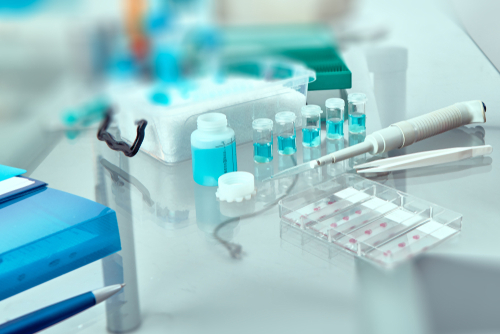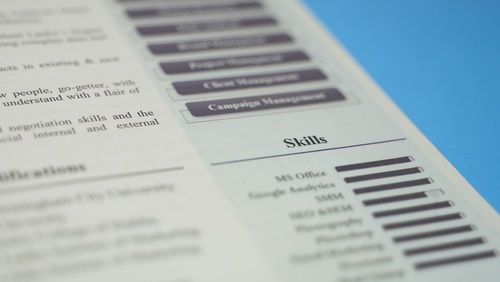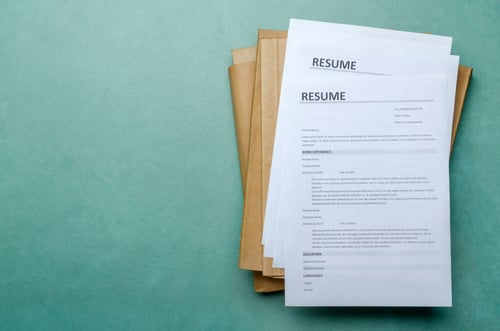If you're a pharmacist looking to update your resume or a recent graduate preparing to enter the job market, you've come to the right place.
As a pharmacist, you play a vital role in the healthcare industry, and your resume should reflect your skills, experience, and education. In this blog, we'll provide you with best practices for crafting a standout pharmacist resume and examples to help guide you.
Whether you're seeking a position in a hospital, pharmacy, or other healthcare setting, your resume is essential for demonstrating your qualifications and landing an interview. We'll cover everything from formatting and layout to what to include in each section, so you can be confident that your resume will stand out to potential employers.
So, let's get started!
Pharmacist Resume- Format

This is an excellent choice for most pharmacists, as it allows the recruiter to quickly see your qualifications and relevant experience. However, it's always a good idea to consider your specific situation and choose the format that best presents your skills and experience in the most favorable light.
In addition to the reverse-chronological format, a few other options can be effective for pharmacists. The functional resume format is ideal for pharmacists who are highly qualified but have limited work experience or have gaps in their employment history.
This format focuses on skills and accomplishments rather than work experience
The combination resume format combines elements of both the functional and reverse-chronological formats, highlighting both skills and work experience.
This may be a good choice for pharmacists with a wealth of experience.
Once you've chosen your format, it's essential to consider the layout of your resume. Keep it under one page in length, and consider using a one-page resume template for guidance.
Related Articles:
- Resume Headline: Best Headlines to Use in 2023-Drjobpro.com
- Work Experience on A Resume: How to Format for Maximum Impact?-Drjobpro.com
- Resume Photo: Yes, or No?-Drjobpro.com
- 8 Samples of Career Objective for Resume
Pharmacist Resume- What to Include?

- Contact information: Include your name, address, phone number, and email address at the top of your resume.
- Professional Summary: Your professional experience, skills, and goals.
- Education: List your pharmacy degree, including the name of the degree and the school where you received it.
- Work experience: Include any relevant experience as a pharmacist, including the employer's name, job title, and dates of employment.
- Skills: List relevant skills or certifications, such as proficiency in electronic medical record systems or experience with medication safety protocols.
- Additional sections: Depending on your specific experience and goals, you may also want to include sections on professional development, research, or volunteer work.
How to Mention Your Contact Details in the Pharmacist Resume?

The contact information section of your resume should include your full name, professional title (such as "Pharmacist"), phone number, and email address. Make sure to use a professional email address rather than one that is unprofessional or childish. You may also choose to include your location.
Just as you would when checking patient prescriptions for accuracy, it's essential to be thorough and detail-oriented when reviewing the contact information on your resume. You can avoid potential miscommunications and present yourself as a reliable and professional candidate.
How to Write a Summary or Objective for Your Pharmacist Resume?

To write a strong summary or objective, consider the following tips:
- Keep it brief: Aim for a summary or objective that is no more than a few sentences long.
- Focus on your strengths: Highlight your most relevant skills and experience and how they make you a good fit for the position.
- Include specific examples: Use concrete examples to illustrate your skills and experience rather than making general statements.
- Tailor it to the job: Customize your summary or objective to the job you're applying for, and use keywords from the job posting to show that you're a good match.
How to Write a Perfect Work Experience Section in Your Pharmacist Resume?

One effective way to structure your work experience section is to list the position name, company name, dates of employment, and a bullet point list of responsibilities and achievements.
For example:
Pharmacist, ABC Pharmacy
Dates of employment: January 2020 - Present
Responsibilities:
- Dispense prescription medications to patients
- Counsel patients on proper medication usage and potential side effects
- Collaborate with the healthcare team to coordinate patient care
- Achievements:
- Implemented a new system for tracking medication inventory, resulting in a 20% reduction in waste
- Earned recognition from the pharmacy board for outstanding patient care
Add Action Verbs for More Opportunities!

Here are a few examples of action words that you might use on your pharmacist resume:
- Administered
- Analyzed
- Collaborated
- Coordinated
- Dispensed
- Implemented
- Managed
- Monitored
- Prescribed
- Provided
- Supervised
How to List Your Education in Your Pharmacist Resume? With Example

To list your education in your pharmacist resume, follow these steps:
- Start with your most recent degree: List the name (such as Doctor of Pharmacy or Bachelor of Science in Pharmacy), the name of the school where you received it, and the graduation date.
- Include any relevant coursework: If you took courses that are particularly relevant to the position you're applying for, you might want to list them here.
- List any relevant certifications: If you have any pharmacy-related credentials, such as a license to practice pharmacy or certification in a specific area of practice, be sure to include them in this section.
Education
Doctor of Pharmacy, XYZ University
Graduated: May 2020
Relevant coursework: Drug metabolism, pharmacokinetics, pharmacogenomics
Certifications: Licensed to practice pharmacy in state XYZ
Add These Skills to Your Pharmacist Resume!

- Dispensing medication: The ability to accurately and safely administer medication to patients is a critical skill for pharmacists.
- Knowledge of medications and their uses: Pharmacists should understand the various available medications, their uses, and potential side effects.
- Patient communication: Pharmacists should be able to communicate clearly and effectively with patients, answering their questions and providing information about their medications.
- Attention to detail: Pharmacists must be highly detail-oriented, as even minor errors can have serious consequences.
- Computer proficiency: Pharmacists' ability with electronic medical record systems and other computer programs is essential.
- Industry regulations: Pharmacists should know industry regulations and standards, such as HIPAA and state pharmacy laws.
- Teamwork: The ability to work effectively as part of a healthcare team is essential for pharmacists.
- Problem-solving: Pharmacists should be able to analyze and solve problems related to medication management and patient care.
- Time management: Pharmacists often work with tight deadlines and must be able to manage their time effectively.
- Customer service: Pharmacists should have excellent customer service skills, as they often work with diverse patients.
Other Sections to Add to Your Pharmacist Resume:
Your pharmacist resume is almost ready to be sent off, but there are a few additional sections you may want to consider adding to make it the best it can be.First, consider including a section on awards and certifications. The healthcare industry is constantly evolving, and demonstrating that you are up-to-date and correctly qualified can be a deciding factor in getting shortlisted.
You might also want to include a section on language skills, even if they are not directly related to your role as a pharmacist. Being bilingual or proficient in multiple languages can be impressive to potential employers.
Finally, you may want to include a section on interests and hobbies. While these may not be directly related to your job as a pharmacist, they can add a personal touch and help the recruiter get to know you better. Just be sure to keep this section brief and choose hobbies and interests that are relevant and appropriate for a professional setting.
Don't Forget to Attach a Cover Letter!

To write a strong cover letter for a pharmacist position, consider the following tips:
- Use a professional tone: A cover letter is a formal document, so be sure to use a professional tone and avoid using slang or overly casual language.
- Address the letter to a specific person: If possible, address the letter to a particular person rather than using a generic greeting.
- Explain why you're interested in the position: In the first paragraph of your letter, explain why you're interested in the position and why you believe you're a good fit.
- Highlight your relevant skills and experience: Use specific examples to illustrate your skills and experience and how they make you a strong candidate for the position.
- Close with a strong closing: End your letter with a solid conclusion, such as "Sincerely" and your contact information.







 2024-09-05
2024-09-05
 2023-02-28
2023-02-28
 2023-02-24
2023-02-24
 2023-02-16
2023-02-16